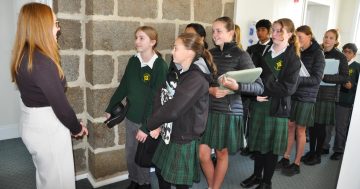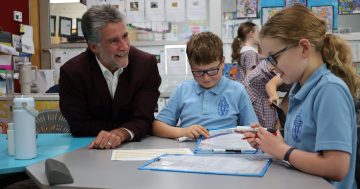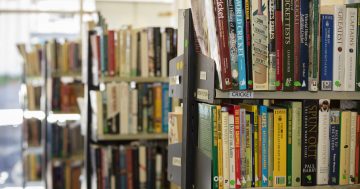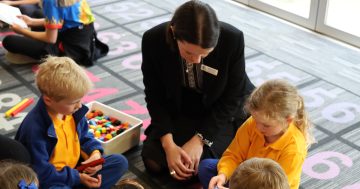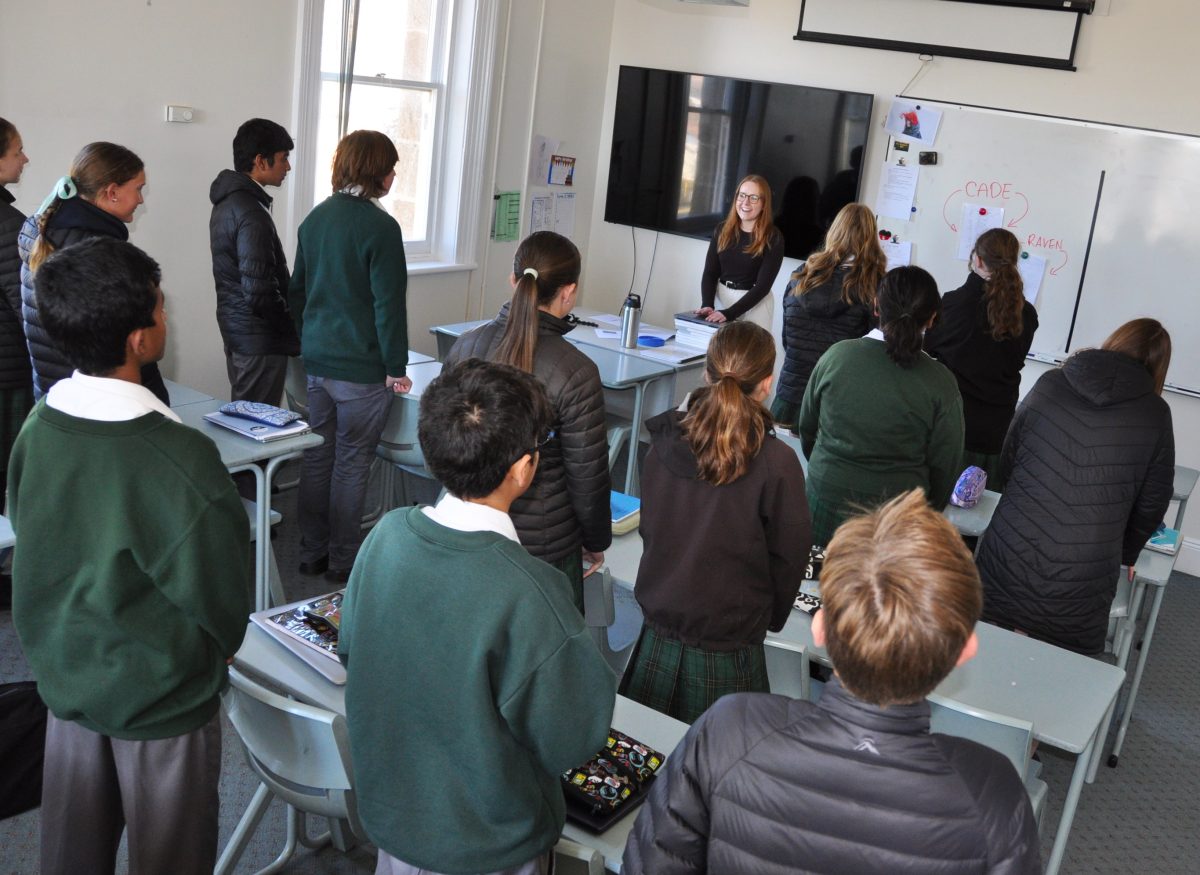
A class at Cooma’s St Patrick’s Parish School is piloting the Classroom Mastery program. Photo: Frances Robertson.
My recent story on the piloting of a new program in some of the Canberra region’s Catholic schools that aims to improve classroom behaviour and create better learning environments has certainly struck a chord in the community.
It is now one of this year’s most-read posts, indicating the depth of feeling about the state of our schools.
The Classroom Mastery program being piloted isn’t unique and won’t be the last to be developed, promoting an ordered, calm and consistent classroom experience to help reduce disruptive behaviour and support better learning outcomes.
The story referred to research that showed Australia’s classrooms were among the rowdiest in the world, and just this week, the Australian Council for Educational Research released its second report on the latest data from the OECD Program for International Student Assessment (Pisa) test, which surveys 15-year-olds.
The disciplinary climate in Australian schools was significantly worse than the OECD average, bullying was rife, and students felt less safe at school than the OECD average.
Forty-two per cent reported noise and disorder in most classes, and high levels of distraction from smartphones and apps. A third claimed students didn’t listen to what the teacher said.
Unsurprisingly, these issues translated to poor school performance.
The selected Catholic schools have gone all in by rolling the pilot program out across all classes in a bid to create a new whole-school culture that sets high expectations for all students.
Many will call it “old school”, and some of us who are old enough will remember something similar from our schooldays before the liberalisation of education that began in the 1970s and has continued ever since.
But nostalgic it is not. I, for one, would not wish upon today’s students the implied and actual institutional violence in word and hand that I remember nor the stifling conformity.
Yet, if the methods were arbitrary and varied from teacher to teacher, classrooms were quieter, learning did happen, and school was generally a good place to be, although teachers struggled at times to keep a lid on the familiar outbursts of teenage male violence.
In the drive to free up education and make it more creative, imaginative and fun, the old formalities melted away, chunks of the curriculum were deemed no longer relevant and schools, particularly state-run schools, became susceptible to fads, especially when it came to student agency and self-directed learning.
Schools and teachers needed to change, as society itself did, but throwing the baby out with the bath water has led to the present predicament.
A general reassessment is now underway, driven by poor results and parental alarm but backed by advances in child psychology and neuroscience.
It is no coincidence that Catholic schools embarked on its explicit and high-impact teaching program Catalyst a few years ago and now see an opportunity to reinforce it with a behavioural reset.
That is something ACT schools should consider as they implement the recommendations of the independent inquiry into literacy and numeracy.
This reassessment may draw on some threads from the past, but it should be seen less as ‘back to basics’ and more as a genuine attempt to meet the basic needs of the child for routine, predictability, order and calm, all of which are conducive to learning.
These consistent standards and expectations can be set in a spirit of mutual respect and accountability.
By transforming the overall behavioural environment and equipping teachers with real management tools, schools will have a much better chance of dealing with disruption.
Australian schools need to address their cultures, curriculums, and teaching methods if they are to arrest their declining performance.
Building success will be the way to increase equity and opportunity, and that will be vital for the nation as it faces an increasingly uncertain future.












